
Sometimes I am boggled by the gallery of souls I've known. By the lore. The wild history, unsung, Rachel Kushner writes in The Hard Crowd, her 2021 essay collection. People crowd in and talk to me in dreams. People who died or disappeared or whose connection to my own life makes no logical sense, but exists as strong as ever, in a past that seeps and stains instead of fades. As a girl in San Francisco's Sunset District, Kushner ran with a group whom she has described as ratty delinquents-kids who fought, who set fires, who got high too young and too often, who in some cases wound up incarcerated or addicted or dead. At 16, she headed to UC Berkeley for college, but returned to the city after graduating working at bars and immersing herself in the motorcycle scene. Almost immersing herself, anyway. Even when she was a 14-year-old sampling strangers' drugs at rock concerts, some piece of Kushner was an observer as well as a participant, a student of unsung histories.
In her fiction, Kushner gravitates toward main characters who occupy that same split psychological place. All of her novels her latest, Creation Lake, is her fourth-feature a young woman, usually a narrator, who shares her way of viewing the world. Kushner often loans her protagonists her own biker swagger, the hard layer of confidence that helps a woman survive in a very male environment. Preferring to write in the first person, she also gives her central characters her distinctive style: Kushner is alternately warm and caustic, funny and slippery, able to swing from high-literary registers to street slang and back in an instant. Her recurring theme has been the limits that even groups of outsiders impose on women, and yet her female characters, no matter how constrained they find themselves, are roving, curious thinkers, using their keen powers of observation to escape subjugation and victimhood-in their minds, if not in their circumstances.
This story is from the October 2024 edition of The Atlantic.
Start your 7-day Magzter GOLD free trial to access thousands of curated premium stories, and 9,000+ magazines and newspapers.
Already a subscriber ? Sign In
This story is from the October 2024 edition of The Atlantic.
Start your 7-day Magzter GOLD free trial to access thousands of curated premium stories, and 9,000+ magazines and newspapers.
Already a subscriber? Sign In
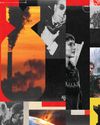
Apocalypse, Constantly
Humans love to imagine their own demise.

A Palestinian American Sex and the City
Betty Shamieh's debut novel is a rebellious rom-com.
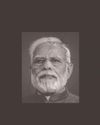
Modi's Failure
Why India is losing faith in its strongman leader
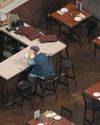
The Anti-Social Century
Americans are now spending more time alone than ever. It's changing our personalities, our politics, and even our relationship to reality.
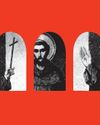
The Wild Charity of Saint Francis
The guide we need, now that kindness is countercultural
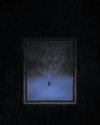
Where Han Kang's Nightmares Come From
In her novels, the South Korean Nobel laureate returns again and again to her countrys bloody past.
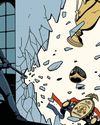
TROPHY HUNTERS
A GROUP OF CHILDHOOD FRIENDS PULLED OFF A STRING OF THE MOST AUDACIOUS SPORTS-MEMORABILIA HEISTS IN AMERICAN HISTORY. THEN THEY DID SOMETHING REALLY CRAZY.

THE NEW RASPUTINS
Anti-science mysticism is enabling autocracy around the globe.
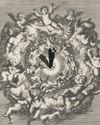
ARMY OF GOD
AMERICAN CHRISTIANS ARE EMBRACING A CHARISMATIC MOVEMENT KNOWN AS THE NEW APOSTOLIC REFORMATION, WHICH SEEKS TO DESTROY THE SECULAR STATE. Now THEIR WAR BEGINS.
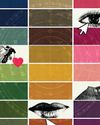
WHAT NOT TO WEAR
The false promise of seasonal-color analysis